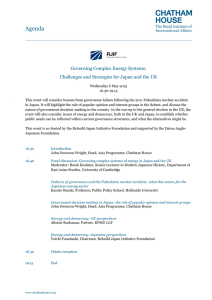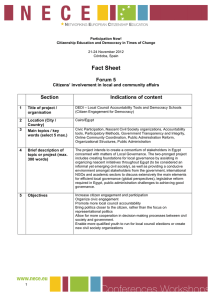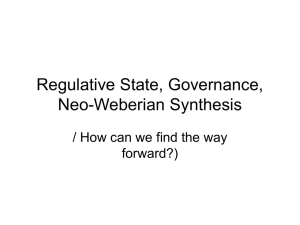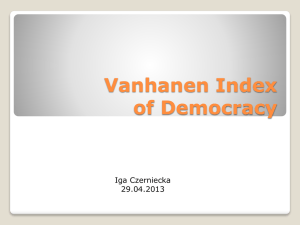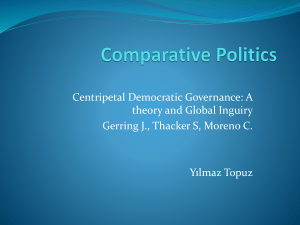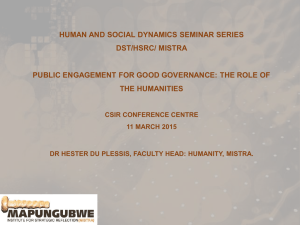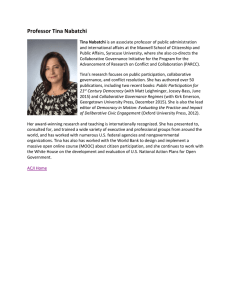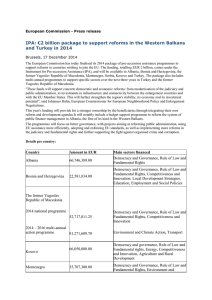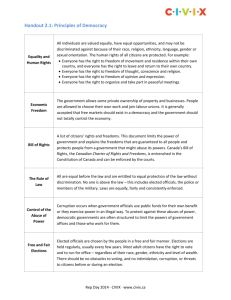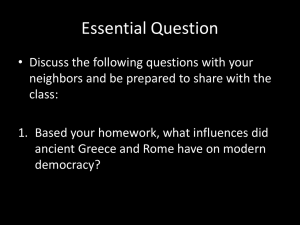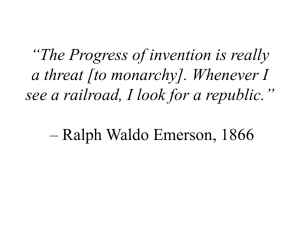Democracy and Good Governance
advertisement
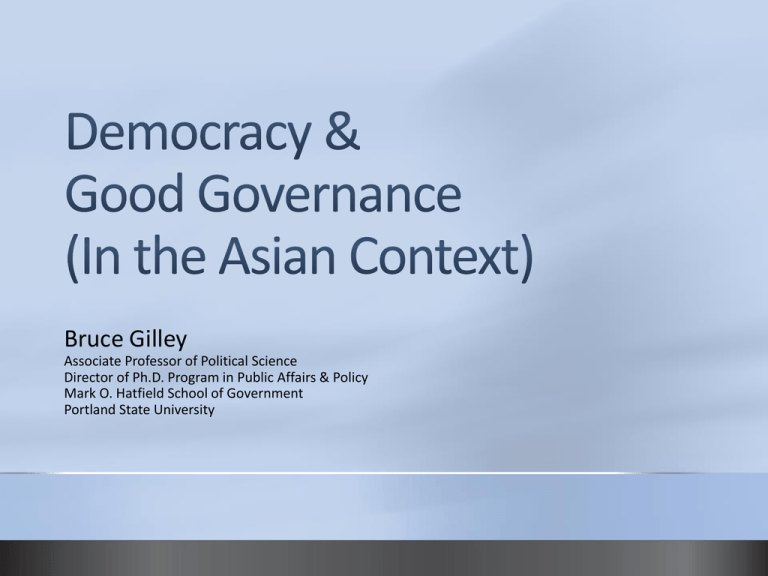
Bruce Gilley Associate Professor of Political Science Director of Ph.D. Program in Public Affairs & Policy Mark O. Hatfield School of Government Portland State University What is the relationship between democracy and good governance? Is this relationship different in Asia? How can public leaders maximize the advantages and avoid the pitfalls? Key relationship: Government → Public Value Key principle: legitimate and effective public policy Spheres: public policy (economic, environmental, social, political, international) Tools: technology, institutional capacity, public leadership, social support, accountability mechanisms Key relationship: Citizens → Government Key principle: popular control as political equals Spheres: regime rules, office-holders, public policy Tools: technology, institutional capacity, impartial institutions, elections, rights and freedoms, rule of law, development People Government Good Governance Democracy Support Policy Common tools Support Shared tools: technology, institutional capacity Good Governance supports Democracy (impartial institutions, elections, rights and freedoms, rule of law, development) Democracy supports Good Governance (public leadership, social support, accountability mechanisms) Relationship different (Lee hypothesis? Thompson Hypothesis?) Sequencing different (Development State Model)? 2 0 Indonesia Philippines Singapore Malaysia Thailand -1 Cambodia Laos -2 Democracy 1 Japan Taiwan Korea, South Vietnam China Myanmar Korea, North -2 -1 0 Governance 1 2 3 2 1 0 -1 -2 -3 Democracy Stateness Support for Lee Hypothesis (S > D) Middle income traps Latin Americanization Mutually supportive reforms State-led democratization (public value focus) Society-led governance (contentious politics)
